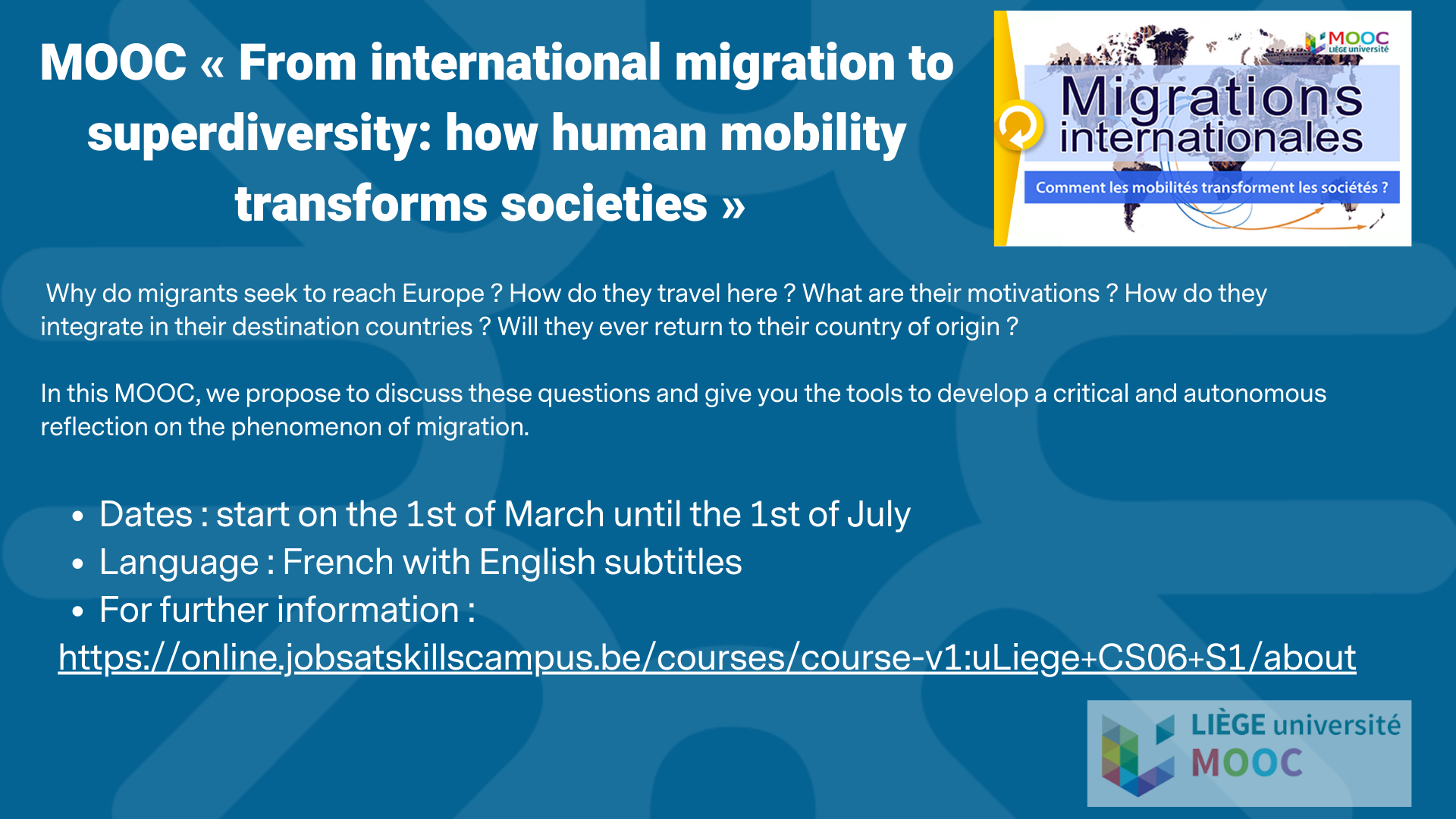Why do migrants seek to reach Europe? How do they travel here? What are their motivations? How do they integrate in their destination countries ? Will they ever return to their country of origin?
In this MOOC, we propose to discuss these questions together and provide you with the tools to develop a critical and autonomous reflection on the controversial phenomenon of migration.
More precisely, this MOOC proposes to follow in 7 steps the path of migrants from the society of origin to the society of settlement. These migratory journeys, as we shall see, can vary significantly from one migrant to another. One can migrate with or without legal authorization to do so. One can find better economic opportunities in the country of residence or on the contrary be in a precarious situation. Finally, migration can lead to permanent settlement or, conversely, to multiple moves or even a return to the society of origin.
To provide you with the keys to a better understanding of migration, we will carry out a wide range of activities together. There will be video clips and chats with your three teachers, interviews with experts to deepen certain more specialized issues such as the question of camps or religious diversity. There will also be testimonies from migrants, short texts to read to deconstruct certain myths and finally quizzes to help you retain the central notions and concepts on migration. We will also offer a series of writing assignments that will be corrected through a peer correction system.
Target audience
This MOOC is aimed at a wide audience: students or future students in the field of humanities, professionals and decision-makers in the field of migration, diversity, education or simply curious people who want to form an opinion on the complex field of migration based on scientific arguments.
Course Outline
Module 0 :Introduction
Module 1 :Defining International Migration
Module 2: International migration trends. Where are we leaving from and why?
Module 3: Itinerary and travel. How do we migrate?
Module 4: Transit and stops. What diversity in migratory routes?
Module 5: Arrival and settlement
Module 6: Return and transnationalism
Module 7: Integration


